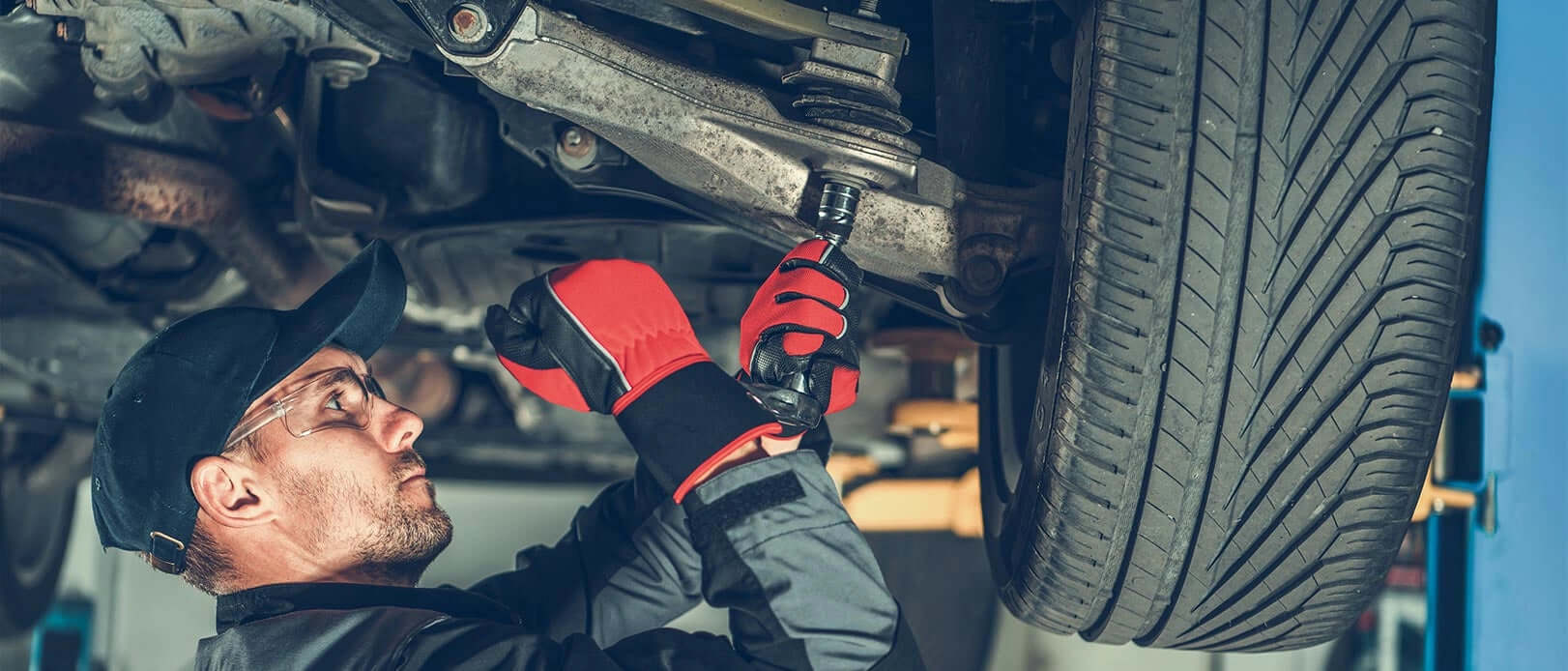Why It’s Important to Maintain Your Car
You’ve heard the saying “an ounce of prevention is worth a pound of cure.” Well, that phrase is just as true for your car as it is for your physical health. Investing your time and occasionally a little money into your vehicle can pay huge dividends in the form of long-lasting performance.
Advantages of regular maintenance
Taking good care of your vehicle regularly is a smart financial practice, but it also has some other advantages.
- Early detection. Spending lots of time with your vehicle will help you become aware of when things are wrong. And the earlier you find a problem, the easier and cheaper it typically is to fix.
- Value protection. A car in good running shape is far more valuable than one with issues. Your car’s service record is tied to its VIN number. So if you decide you want to sell it at some point, a CARFAX record showing that you performed all the recommended services can help you get top dollar for your car.
- Familiarity. No matter how well you maintain your vehicle, you will need to have it serviced at some point. Spending time learning the ins and outs of your car can help you explain issues and concerns to your mechanic and help them better diagnose problems.
Top 6 Cost-Effective Ways To Maintain Your Car
You may have had any number of expensive services pushed at you at your dealership. But the truth is, some of the most important ways to maintain your car are also some of the most cost-effective ways to maintain your car.
Read your owner’s manual
Have you read your owner’s manual yet? It might feel like homework, but your vehicle’s manual is a treasure trove of cost-saving information. Here’s some of what you’ll find:
- Recommended maintenance schedule. This schedule tells you which services your car’s manufacturer recommends and when you should have them performed. Trust them.
- Important how-tos. Instructional content that teaches you to do things like check your oil and other fluids or change a fuse can save you numerous trips to the repair shop.
- Replacement part list. You’ll find a list of common replacement parts like light bulbs to help ensure you get the right ones.
- Recommended standards. Your manual also contains information about the proper standards for your vehicle such as its recommended tire pressure.
- Oil requirements. Different cars require different types and weights of motor oil. Your manual will tell you which kind of oil you should use in your car.
Change your oil regularly
Any mechanic will tell you that one of the keys to extending the healthy life of your vehicle is staying on top of your oil changes. Depending on your vehicle and what kind of oil it requires, this could be between every 3,000 and 5,000 miles.
Oil changes also provide a good opportunity to check up on other parts of your vehicle. Whether you do that work yourself or take it to a mechanic, you can use this chance to inspect your exhaust system, suspension, and other components.
Look (and listen) for problems
As we mentioned, early detection is critical to avoiding unnecessary repair costs on your vehicle. Small problems don’t go away, they just get bigger. And they also put additional stress on other components in your vehicle.
For example, one of the more common repairs on an aging vehicle is a broken air suspension. Even one leaky air spring can cause the weight of the vehicle to be distributed differently. This will cause other suspension components and even related systems like braking and steering to wear down more quickly.
In this case, waiting to fix a broken air spring can drive up your repair costs exponentially. Being proactive and looking for problems is one of the most cost-effective ways to maintain your car.
Get a feel for your brakes
We don’t have to tell you how important your brakes are. But you might not realize just how much they affect the rest of the car’s longevity.
Stopping a car takes a tremendous amount of force. When your brakes are working properly, they absorb much of that force. But when they aren’t working optimally, the rest of that force gets picked up by the suspension and other components, causing early failure.
Make sure you know how your brakes are supposed to feel when they are working properly. Your brakes will feel “off” before you’ll be able to hear them, so being able to recognize when they start to deteriorate can save you lots of wear and tear on your car.
Keep an eye on your tires
Many people don’t think about the fact that your car’s tires are the only part of it that actually touches the road—as long as it’s working properly, anyway. That means that not only are they absolutely critical maintenance items, they’re also a good place to look for indications of how your car is performing.
Here are a few things to look for:
- Uneven wear. The wear and tear on your tires should be fairly even. If they are more worn out on the inside or the outside of the tread, this could indicate an alignment or suspension issue.
- TIre pressure. It may seem simple but keeping your tires inflated properly is one of the most effective and cost-effective ways to maintain your car. Running your vehicle with tire pressure that’s too low or too high causes it to run in ways it wasn’t designed to, leading to additional strain on its components.
- Regular rotation. Rotating your tires regularly will help ensure that the stress of driving remains distributed equally across the vehicle.
- Excessive wear. Driving a car with insufficient tread is dangerous. But when your tires have reduced stopping power, the brakes and suspension pick up the extra force needed to stop and slow your car.
Don’t run straight to the dealer for service
It’s reasonable to think that the technicians at your dealership are the experts on your vehicle. And while they may be, the dealership is one of the most expensive places to get your car serviced.
That’s because of a few reasons:
- OEM components. Most dealerships use only branded components, which typically cost far more than aftermarket components.
- Expensive labor. Mechanic labor at dealerships also typically comes at a premium.
- Unnecessary services. Many people have experienced being recommended services that just aren’t necessary at repair shops. Car dealerships can be especially bad about this.
Use a payment plan if you need to
When you own a car, you will need repairs. But they may not always pop up when you have the funds to take care of them, which can lead to many people ignoring them. As you’ve seen, that can lead to even more expensive repairs down the road.
Fortunately, payment plans for auto parts have become much more available in recent years. While you may not be able to afford the full cost of something like an air suspension conversion kit at once, you may be able to afford a few monthly payments. That means that even if you don’t have much cash on hand now, a payment plan can provide you a cost-effective way to maintain your car.
Affirm Payment Plans: Now Available at Strutmasters
Don’t let suspension problems lead to even more expensive repairs in the future. With Affirm payment plans, you can purchase Strutmasters suspension repair and replacement components with comfortable monthly payments.
That means you can fix your air suspension problems now, before the rest of your car—and your wallet—suffers. Why spend a pound on a cure later when you can spend an ounce on prevention now?




